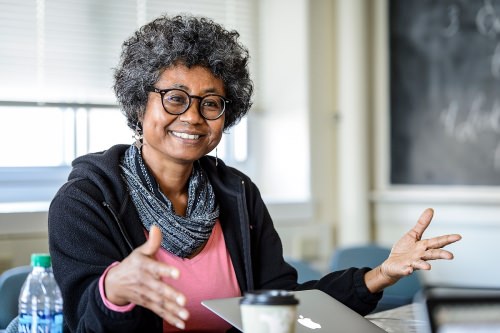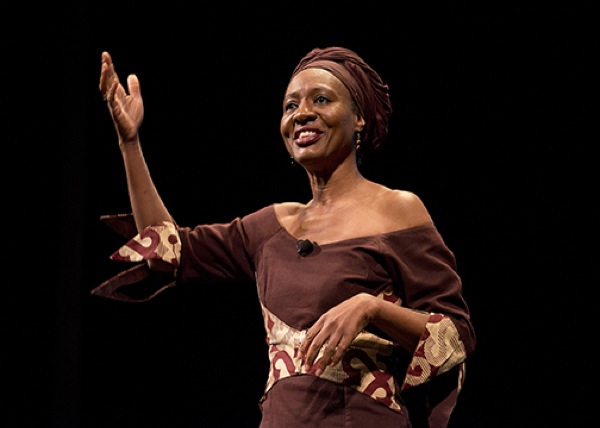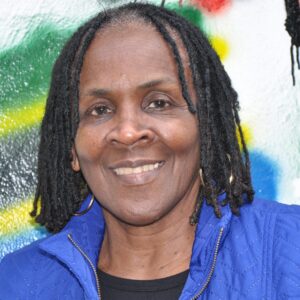Leah Wise
Leah Wise is a dancer, oral historian, grandmother, disabled steel-fitter, fighter of Klan violence and community organizer. She uses the enormous range of her talents to stimulate hopes, dreams and activism of those marginalized by mainstream American culture and politics.
Starting with her work four decades ago with the Student Non-violent Coordinating Committee in the Civil Rights Movement and its campaign against the war in Vietnam, Leah has never backed away from the front lines of struggling for justice. Raised in Berkeley, California, Leah moved from the West to the South. Interrupting her graduate studies at Duke University where she earned an MA, she took a job as a steel-fitter, when left without child support. Disabled on the job, she experienced first-hand the South’s vehement anti-labor climate and abusive treatment given Southern workers, who are excluded from many of the legal protections granted their peers north of the Mason-Dixon line. From then on, she took up the economic justice banner, devoting her efforts to bringing human rights into Southern workplaces and banding with workers to create an inclusive workers movement.
To tell an accurate history about the grassroots power of the Civil Rights Movement, Leah helped shape the Martin Luther King, Jr. Center for Nonviolent Social Change. She personally gathered its core collection of archives. She is a founding editor of the progressive journal. Southern Exposure, which for 38 years has reported on and connected social change activities across the South. Leah was a founding board member of the Center for Democratic Renewal and its predecessor, the National Anti-Klan Network, which emerged to counter resurgent hate violence and terror at the time of the Greensboro massacre in 1979.
Five years later, she initiated North Carolinians Against Racist and Religious Violences, which helped stem the grassroots neo-Nazi movement burgeoning in the state. She served for a dozen years as the director of Southerners for Economic Justice [SEJ], exposing the conditions of low-wage workers in the South and forging church support for workers’ struggles. Under Leah’s leadership, SEJ helped organize housekeepers at the University of North Carolina to win a living wage.
Leah also became affiliated with the Urban Rural Mission, an international network of grassroots affiliated with the World Council of organizers Churches. This relationship brought her exposure to Bhopal, India, where she learned first-hand the devastation to people and environment caused by the world’s worst industrial disaster at Union Carbide. She then began organizing exchanges between Bhopal victims and Southern workers and communities fighting toxic pollution, broadening SEJ’s focus to include campaigning for justice for Bhopal victims and corporate accountability.
In the late 1980’s, with peers from Tennessee and Mississippi, she co-founded the Southeast Regional Economic Justice Network [REJN], a grassroots network of primarily worker, women and youth organizations. She coordinated REJN for 22 years. One of REJN’s first actions was to organize the Hamlet Response coalition, to fight for company accountability and workplace safety reforms after a fire in the Imperial Foods poultry plant killed 25 workers and injured more than 60 others who were locked inside. This coalition won some of the nation’s most progressive health and safety legislation and went on to successfully battle the insurance industry’s assault on workers compensation. At REJN, Leah helps local people make the connection between global and local economic, racial and gender justice issues.
Under her leadership REJN led workers’ exchanges, particularly among women and youth in Canada, Mexico, the Caribbean, South America, and South Africa. They began to analyze the effects of globalization on their own work and the lives of their communities. When new waves of immigration in the South gave rise to tensions between African American and immigrants, Leah led REJN’s effort to implement alliance building programs, and making immigration reform a credible issue to African American communities.



